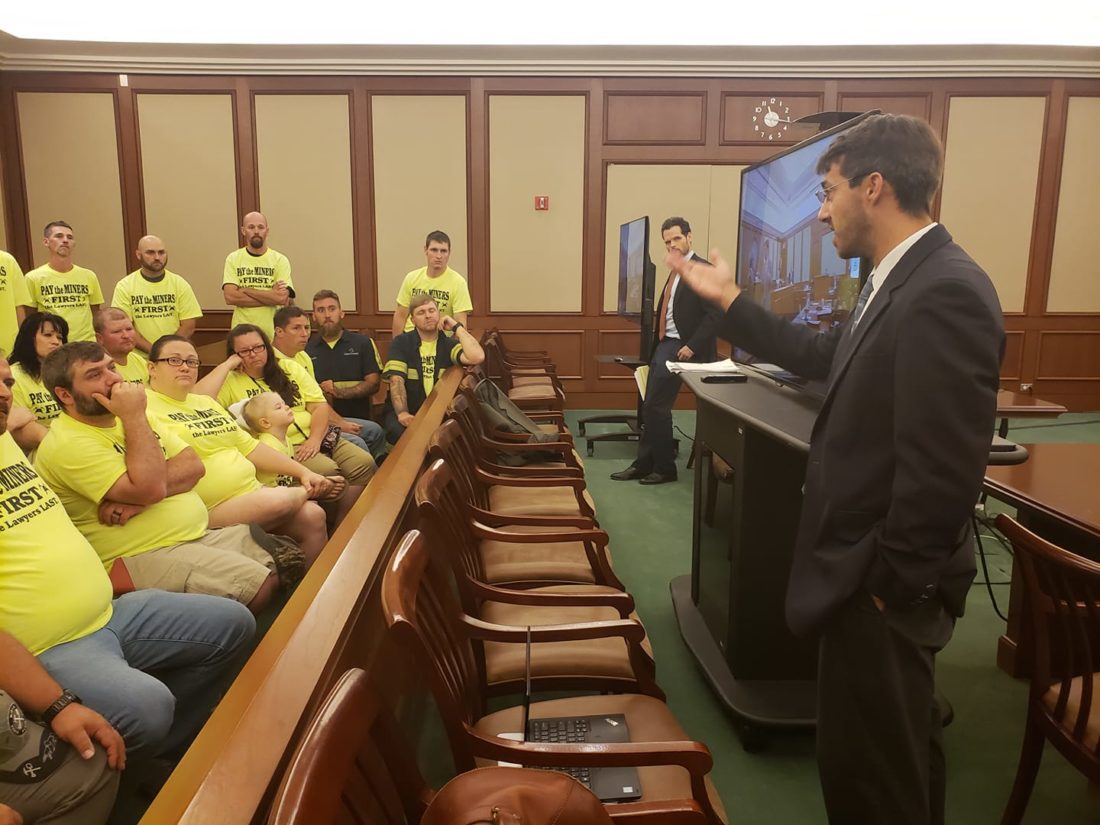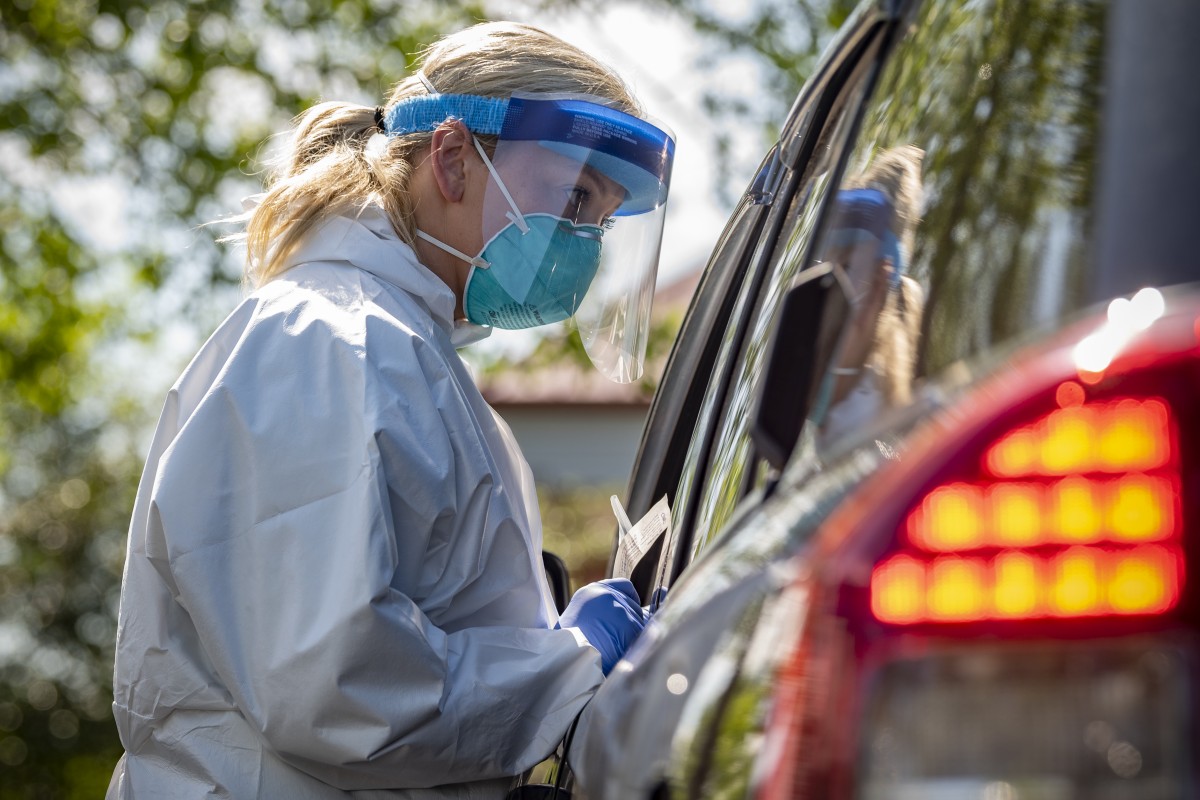Even though I have marched with climate strikes, helped organize protests and advocated for a Green New Deal, I am not an environmentalist.
It sounds contradictory: how could someone who has fought against a pipeline being built through their town, gone on strike in the name of fossil fuel divestment and helped build a climate organization to specifically advocate for Appalachia not believe in that? But “environmentalism” does not accurately reflect efforts that will bring about a more healthy, just and sustainable world. And that is what I’m fighting for.
Even at 16, I cannot remember a time when I was not terrified by looming environmental threats like climate change. For most of my life, though, I more or less trusted the mainstream conversation around this: Recycle! Take shorter showers! Drive less!
If you asked me why this was so important I’d repeat what I had heard: We needed to protect wildlife because it was the right thing to do and reduce emissions to preserve our planet for future generations. I would talk about it like the effects of global warming are thousands of miles away – about polar bears on melting ice caps.
We argue that we should be reducing emissions as a favor to our grandchildren, not a dire obligation. We think about it in terms of degrees of warming or points on a graph, not in lives lost. Worst of all though, we say that environmental problems should be discussed as an isolated issue, like politics shouldn’t be involved.
While I found this ideology of environmentalism shallow for a long time, when the Mountain Valley Pipeline corporation made plans to restart construction a few miles from where I live, I rejected it entirely. It became incredibly apparent to me that this wasn’t just about kindness, polar bears and so-called environmentalism. This was about the health of our communities, this was about our chance for a livable future, this was about the unjust power structures allowing a billion dollar company to force its way through the system. I realized that “environmentalism” as a word does not communicate how these many issues – political power, public health, clean water, etc. – intersect and how pretending they are separate ends up missing the point. “Environmental justice, ” instead, a term with roots in the anti-racism movement of the 1980s, treats these problems like they should be: as entirely multifaceted, as inseparable from racism, inequality and who exactly gets to make decisions in our society.
While the necessity of humans caring about their surroundings dates back to the very beginning of our species, the Industrial Revolution allowed for a small minority of people to damage the world around them at unprecedented rates — usually for the sake of money. The understanding of the term environmentalism, originating in opposition to that threat, by our country and our world at large continues to be one of the root problems of the term’s use today. It has been long used to describe efforts and sentiments that have destructive and harmful consequences.
Teddy Roosevelt’s efforts to establish national parks, for example, are often lauded by modern environmentalists. But this fails to acknowledge that such parks were created by violently pushing indigenous communities off of the land for the sake of creating “uninhabited wilderness,” showing environmentalism’s bloody roots in colonialism.
Environmentalism is also often more closely aligned with trendy “go green” gimmicks than actually making significant — and vital — change. For example, in 2019 a campaign to ban and reduce usage of disposable plastic straws in favor of reusable ones took over the internet. While plastic pollution is an infinitely important issue to tackle, spending so much time and energy focusing on a single, small, consumer object seemed laughable in the face of such far-reaching threats. The campaign’s slogan: “save the turtles,” later became a well-known internet joke for its apparent hypocrisy. As it entered the mainstream it became almost like a competition, with people shouting the loudest to prove they cared the most about sea turtles and the planet.
This points to the heart of problems with environmentalism as we know it today: When the center of the discussion is laser focused on shaming people with a “greener than thou” mindset, and one of the proposed solutions is to buy an alternative on Amazon (bloggers and influencers seemed to love having affiliate links) you are long past the point of opening the door to performative activism. Performative activism is the practice of pretending to make a difference in order to clear one’s conscience, but not truly changing anything significant.
On top of this, bids for straw bans actually succeeded in some places, resulting in those with certain disabilities finding themselves unable to be accommodated. It’s a strange irony that the environmental trend of choice ended up further harming a marginalized community while feeding the wallets of some of the largest polluters in the world.
Environmentalism’s association with the ideals of simply “caring about nature” also makes the term incredibly susceptible to a tactic called “greenwashing.” A corporation will run ads or hold press conferences to talk about how much they “care” about the environment and their rosy view of the future we can secure if only everyone would just do their part. This nefarious strategy makes them look like the good guys, even though just 100 corporations are responsible for 71 percent of all industrial greenhouse gas emissions in the world. One of the most notorious examples of this was the “Keep America Beautiful” campaign of the 1970s. A now famous ad featured a (quite racist) depiction of an Indigenous man (played by a white actor) being emotionally distraught from seeing people litter, paid for by leaders of the packaging industry. This helped to shift the blame and responsibility from massive corporate polluters to individual consumers. Littering is terrible, but a drop in the bucket compared to systematic industrial dumping.
In Southwest Virginia, the Mountain Valley Pipeline has been deploying a similar tactic. On their website, they advertise their commitment to “environmental stewardship,” listing community gardens and watershed conservation as reasons they should win public favor. But their website happens to conveniently leave out that they have broken Virginia environmental law over 300 times in their disastrous attempts to force their pipeline through our mountains. They are allowed to claim they “care about nature” without truly examining and being held accountable for the roots of our problem: overconsumption, hypercapitalism and greed. Words aren’t just words–language like this lets them get away with it.
For many people the term “environmentalism” evokes imagery of rich liberals who have vague ideals about “saving the planet” and preserving nature without a thought towards wider societal problems. This framing often has classist overtones and leaves places they deem “backwards” out of the equation. In Appalachia, the idea that environmental issues happen in a vacuum has become less and less amusing. From the fight to stop mountaintop removal mining, gas pipelines and decades of exploitation of our people and our resources, we know that our natural world is infinitely intertwined with the health and safety of people. Environmentalism today is less about striving towards a mutualistic relationship with the rest of the earth and more about keeping a clear conscience – this doesn’t work in Appalachia and shouldn’t be accepted anywhere else.
It’s a small start, but we should call environmentalism what it is: A problematic term that has been manipulated to fit the needs of those who are – intentionally or otherwise – hiding reality. Whether it’s through shallow and performative activism, or quietly covering up corporate crimes, environmentalism is treated as a tool to artificially wash away the guilt from our hands. How we talk about these issues really does matter, and we better get it right soon, or else we’ll keep looking away from those converting our remaining hope into green pieces of paper – forever. That is why I am an environmental justice advocate, not an environmentalist.
Béla Williams is a 16-year old high school sophomore from Southwest Virginia. As an organizer with Appalachian Youth Climate Coalition and the Sunrise Movement, he is passionate about telling stories, poetry, and how diverse issues influence our region.



